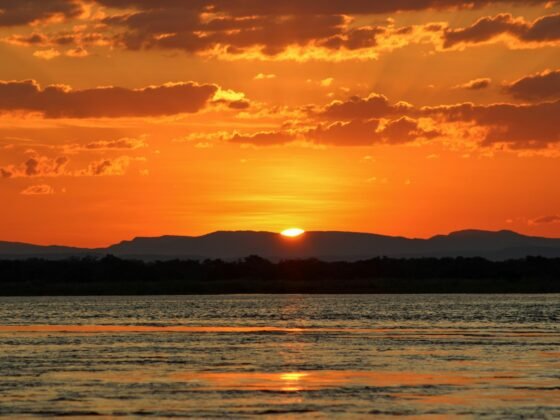On lookout. Twenty-three hundred hours. My eyes are distracted from the horizon by a strangely glittering star. After reading about the number of asteroids, meteors and other chunks of space rock that pass alarmingly close to the Earth, I have been mildly apprehensive about the numerous shooting stars that we can see on these black nights. What if one falls in the Pacific, creating a giant wave that sweeps down upon us? Night watch is a great time for freaking yourself out.
We have been sailing mainly East and North from Opua, New Zealand to Pitcairn Island aboard the traditional tall ship the Barque Picton Castle. It is January 19th, 2014, our 23rd day at sea. I am on the 8-12 watch or CIA – Clean It All – watch because our morning shift involves washing the breakfast dishes, cleaning the heads and showers, scrubbing the galley and the scullery and often wiping down living spaces as well. Though I have never been a night owl, it is the night portion of our watch that I really enjoy. This may be because of the lack of cleaning, or possibly because it is the one time of the day that I reliably do not feel seasick, but mostly I think it is because there is ample time for your mind to wander with the stars.
There are a lot of things you miss while out at sea. Of course, you expect to miss friends and family, fresh fruit and long showers, but other things take you by surprise. Like running. I often can barely stand without holding on to something, let alone attempt to move quickly across the deck. And trees. And dry socks. But what I notice most is the information vacuum on board. Coming from a world of television, radio, internet, textbooks and up to the second updates, the isolated world of a ship at sea is a shocker. Were you for some reason to come aboard with no intention of learning the language of ships, you still inevitably would do so, if only to occupy your mind.
Even so simple a thing as a weather forecast is missed. Though I tend to thing they are going to be wrong anyway, it is somehow comforting to have them. As if my choice in clothing is justified should it prove inappropriate for the conditions. “Well, the weather said…”
And so you start to teach yourself. To invent, observe, to try to make sense of the world around you. Which clouds are foreshadowing rain? How fast are we going? How did that ring of light around the moon form? Even if others have the answers to these questions, they certainly aren’t telling you. So you begin to develop your own folklore.
Think about the bioluminescent phytoplankton (or zooplankton?) that sweep off the bow. How do they light up? And more interestingly, why? Are they communicating to each other? Trying to attract prey? Or are they flashing signals to the stars because they think their brothers and sisters have been lost from their watery home.
And consider the Wandering Albatross. Do they know where they are on this great featureless ocean? Do they track the movement of the stars to find their way? Or are they travellers as the name implies, with no need to find land because the sea provides all they ever require.
You begin to start list of things. Things you will do, things you will buy, and things you will learn when you finally reach land.
Yet despite, or probably more correctly because of these cravings, there are moments that leave you stunned.
Like helming at the start of your night watch. As you steer the ship ever eastward the sun paints liquid gold and turquoise clouds in the sky behind you. Or laying aloft to stow the fore royal sail as the sky goes dark. You know that it is your own memory and experience, not sight, that guides your foot to each tar covered ratline. You have learned to rely on yourself up in the rigging, not the harness attaching you to the ship. And then the night that the outer jib downhaul snaps, sending you out onto the job boom as it pitches through the waves. “This is better than any roller coaster.”
Though I have never enjoyed astronomy on land, at sea I find myself with hours to watch the stars wander the night sky. And as you lay on the hatch watching them slide past the sails, those cravings are forgotten. “This is excellent.”
I could fold this message, put it in a bottle and cast it adrift on the seas. What ocean currents would catch it? Where would it go? Who would find it? Would they look at the same stars and wonder what it looks like when they fall from horizon to horizon? Would they want to go to sea?
Ten minutes to midnight…the end of my watch. My shipmate comes to relieve me and I tell her of the strange star I have seen. Of course though, it is too high in the sky to be anything of importance. Nothing is said of the musings an hour on lookout can bring.
Watch below.
A Adair










